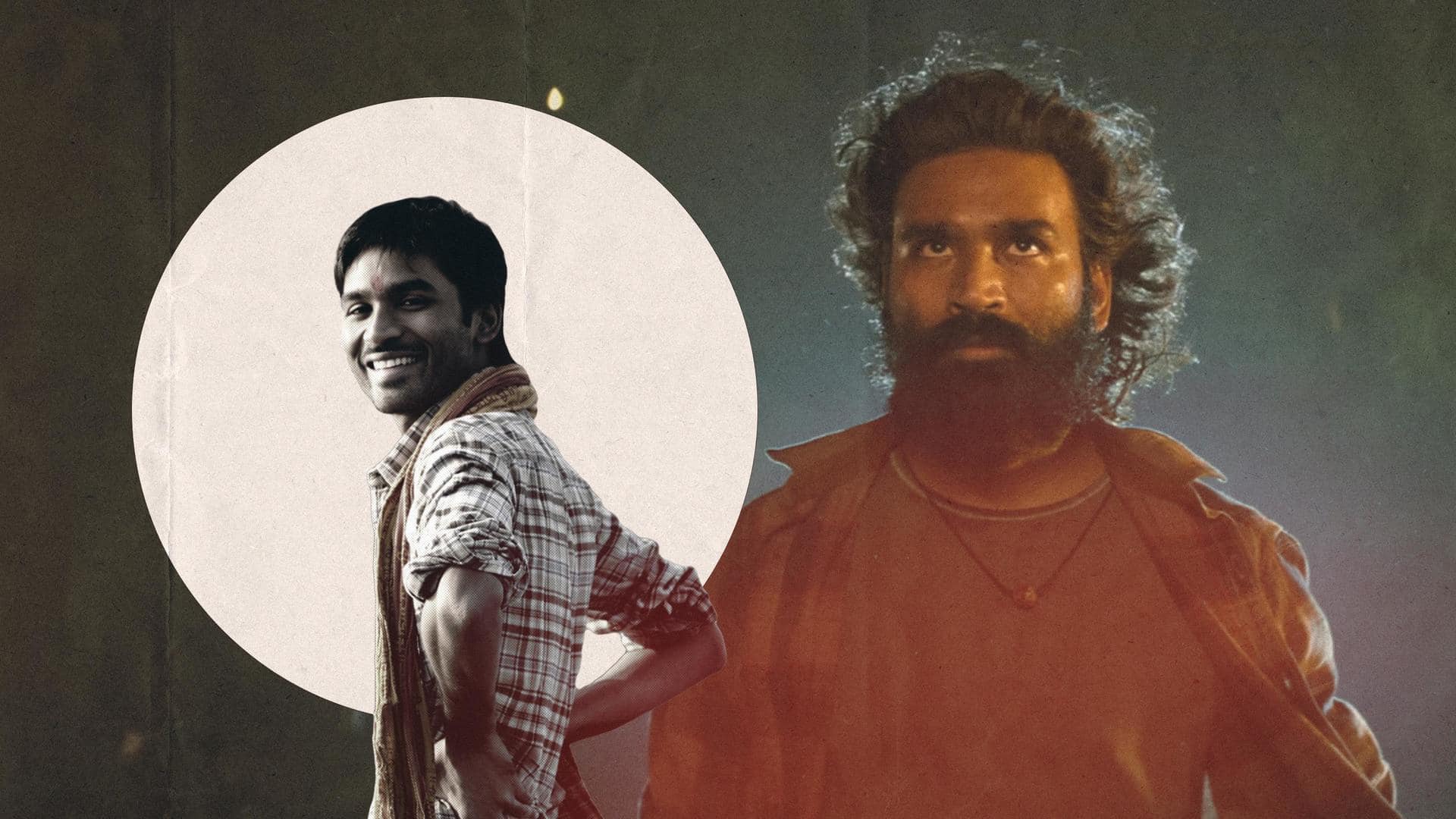
Reminiscing 'Raanjhanaa' as Dhanush announces 'Tere Ishk Mein'
What's the story
On the occasion of 10 years of Raanjhanaa, director Aanand L Rai announced his upcoming film Tere Ishk Mein starring the quintessential superstar and his frequent collaborator Dhanush. The 2013 romantic drama has aged like fine wine. Apart from its grey and complex characters, AR Rahman's scintillating album still tops our playlists. Let's take the time machine and revisit Rai's Benares with Raanjhanaa.
Anticipation
Welcoming Shankar from the world of 'Raanjhanaa'
Tere Ishk Mein is an upcoming romantic action drama set in the world of Raanjhanaa. As per the announcement teaser, much like the predecessor's protagonist Kundan (Dhanush), the upcoming film's Shankar will reek of similarly passionate, toxic masculine traits. The teaser also promises that Shankar will be an amplified version of Kundan. But, have you ever wondered, why Raanjhanaa still remains special?
Theme
Story and themes of the film
Raanjhanaa revolves around a Tamil Brahmin boy (Dhanush), the son of a local priest in Benares who falls in love with a Muslim girl Zoya (Sonam Kapoor Ahuja) in childhood. Soon, his passion for her turns into an obsession leading to a haywire set of events. Rai explores various themes, including interfaith marriages in India, the socio-economic divide, and the country's politics.
Character
Dhanush's portrayal of an obsessed lover
This marked Dhanush's Bollywood debut but he was already an established superstar in Tamil cinema and won the National Award in the Best Actor category for Aadukalam (2011). Dhanush defied the typical framework of the then-definition of a Hindi film hero. The lean-lanky actor exuded magnanimity with his charm and expressions. Even though diction was a barrier, his overall performance overshadowed the flaws.
Love
Kundan's idea of love
Rai took us through Kundan's quest for love and gradually, we understood that Kundan is not in love with Zoya, but in love with the idea of being in love with her. Kundan was never sad about his one-sided love for Zoya but the idea of someone else having her enraged him. Rai justifies that rage in the garb of religion politics.
Information
Rai's commentary on religion politics in India
The movie's commentary on religion politics in India still holds true. Interfaith marriages are still considered taboo. In this film, the potential interfaith marriage of Zoya and Jasjeet (introduced to Zoya's family as Akram) turns into a violent massacre when Kundan unveils the truth.
Screenplay
Shoddy subplots and commendable supporting actors
Jasjeet's (Abhay Deol) character arc showed some spark but the flat writing of the subplot was at par with the two-dimensional character of Zoya. However, writer Himanshu Sharma fleshed out the other supporting characters Murari (Mohammed Zeeshan Ayyub) and Bindiya (Swara Bhasker). Both the characters exuded the banarasiya vibe which helped in pushing the narrative forward with ease.
Music
Rahman's album enhanced the drama
Rahman is a genius in his own right and the whole soundtrack goes through the gamut of love—passion, tenderness, rage, and embrace. Irshad Kamil's lyrics added the much-needed edge and to date, the title track Tum Tak, Aise Na Dekho, and Nazar Laaye top our playlists. Manifesting for the reprise version of Tum Tak and Raanjhanaa in Tere Ishk Mein!
Treatment
Completing the circle of life and death
In an era when socially responsible viewers call out every iota of toxic masculinity, Rai's film did not face flak (initially) as he treated the character quite well. Rai takes us through the journey of a flawed character who ends up dying in the film. The film reaches a high in the end as Kundan's monologue plays; this subtle treatment made it more memorable.